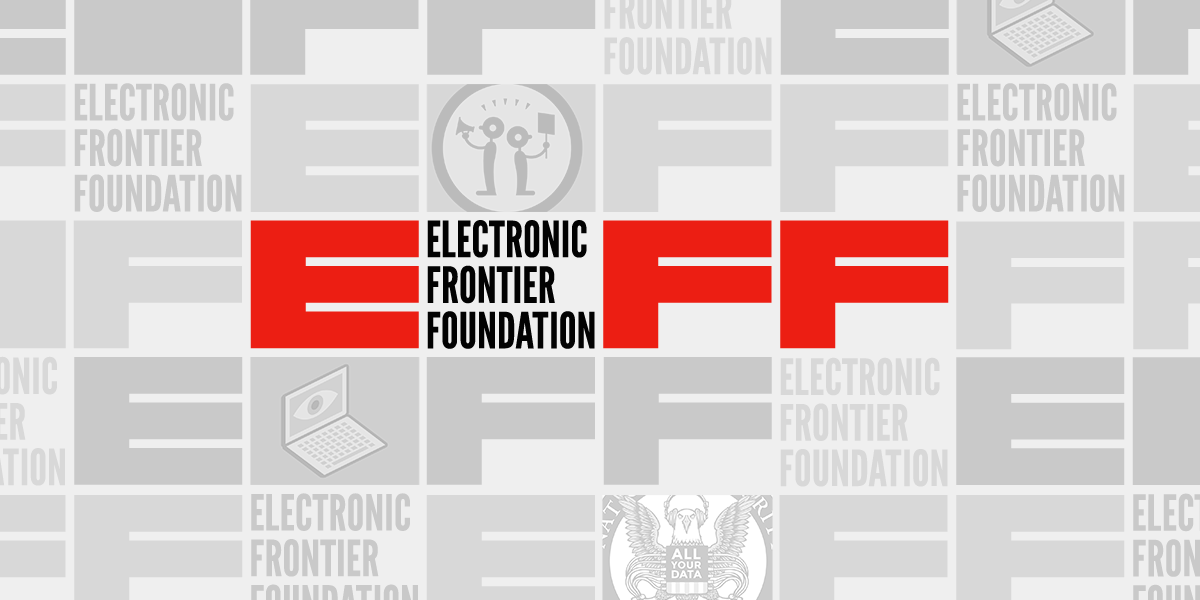Across the United States, nearly every state’s prison system offers some form of tablet access to incarcerated people, many of which boast of sizable libraries of eBooks. Knowing this, one might assume that access to books is on the rise for incarcerated folks. Unfortunately, this is not the case. A combination of predatory pricing, woefully inadequate eBook catalogs, and bad policies restricting access to paper literature has exacerbated an already acute book censorship problem in U.S. prison systems.
New data collected by the Prison Banned Books Week campaign focuses on the widespread use of tablet devices in prison systems, as well as their pricing structure and libraries of eBooks. Through a combination of interviews with incarcerated people and a nationwide FOIA campaign to uncover the details of these tablet programs, this campaign has found that, despite offering access to tens of thousands of eBooks, prisons’ tablet programs actually provide little in the way of valuable reading material. The tablets themselves are heavily restricted, and typically only designed by one of two companies: Securus and ViaPath. The campaign also found that the material these programs do provide may not be accessible to many incarcerated individuals.
“We might as well be rummaging the dusty old leftovers in some thrift store or back alley dumpster.”
Limited, Censored Selections at Unreasonable Prices
Many companies that offer tablets to carceral facilities advertise libraries of several thousand books. But the data reveals that a huge proportion of these books are public domain texts taken directly from Project Gutenberg. While Project Gutenberg is itself laudable for collecting freely accessible eBooks, and its library contains many of the “classics” of Western literary canon, a massive number of its texts are irrelevant and outdated. As Shawn Y., an incarcerated interviewee in Pennsylvania put it, “Books are available for purchase through the Securus systems, but most of the bookworms here […] find the selection embarrassingly thin, laughable even. […] We might as well be rummaging the dusty old leftovers in some thrift store or back alley dumpster.”
These limitations on eBook selections exacerbate the already widespread censorship of physical reading materials, based on a variety of factors including books being deemed “harmful” content, determinations based on the book’s vendor (which, reports indicate, can operate as a ban on publishers), and whether the incarcerated person obtained advance permission from a prison administrator. Such censorial decisionmaking undermines incarcerated individuals’ right to receive information.
These costs are a barrier that deprive those in carceral facilities from developing and maintaining a connection with life outside prison walls.
Some facilities charge $0.99 or more per eBook—despite their often meager, antiquated selections. While this may not seem exorbitant to many people, a recent estimate of average hourly wages for incarcerated people in the US is $0.63 per hour. And these otherwise free eBooks can often cost much more: Larry, an individual incarcerated in Pennsylvania, explains, “[s]ome of the prices for other books [are] extremely outrageous.” In Larry’s facility, “[s]ome of those tablet prices range over twenty dollars and even higher.”
Even if one can afford to rent these eBooks, they may have to pay for the tablets required to read them. For some incarcerated individuals, these costs can be prohibitive: procurement contracts in some states appear to require incarcerated people to pay upwards of $99 to use them. These costs are a barrier that deprive those in carceral facilities from developing and maintaining a connection with life outside prison walls.
Part of a Trend Toward Inadequate Digital Replacements
The trend of eliminating physical books and replacing them with digital copies accessible via tablets is emblematic of a larger trend from physical to digital that is occurring throughout our carceral system. These digital copies are not adequate substitutes. One of the hallmarks of tangible physical items is access: someone can open a physical book and read it when, how, and where they want. That’s not the case with the tablet systems prisons are adopting, and worryingly this trend has also extended to such personal items as incarcerated individual’s personal mail.
EFF is actively litigating to defend incarcerated individuals’ rights to access and receive tangible reading materials with our ABO Comix lawsuit. There, we—along with the Knight First Amendment Institute and Social Justice Legal Foundation—are fighting a San Mateo County (California) policy that bans those in San Mateo jails from receiving physical mail. Our complaint explains that San Mateo’s policy requires the friends and families of those jailed in its facilities to send their letters to a private company that scans them, destroys the physical copy, and retains the scan in a searchable database—for at least seven years after the intended recipient leaves the jail’s custody. Incarcerated people can only access the digital copies through a limited number of shared tablets and kiosks in common areas within the jails.
Just as incarcerated peoples’ reading materials are censored, so is their mail when physical letters are replaced with digital facsimiles. Our complaint details how ripping open, scanning, and retaining mail has impeded the ability of those in San Mateo’s facilities to communicate with their loved ones, as well as their ability to receive educational and religious study materials. These digital replacements are inadequate both in and of themselves and because the tablets needed to access them are in short supply and often plagued by technical issues. Along with our free expression allegations, our complaint also alleges that the seizing, searching, and sharing of data from and about their letters violates the rights of both senders and recipients against unreasonable searches and seizures.
Our ABO Comix litigation is ongoing. We are hopeful that the courts will recognize the free expression and privacy harms to incarcerated individuals and those who communicate with them that come from digitizing physical mail. We are also hopeful, on the occasion of this Prison Banned Books Week, for an end to the censorship of incarcerated individuals’ reading materials: restricting what some of us can read harms us all.



